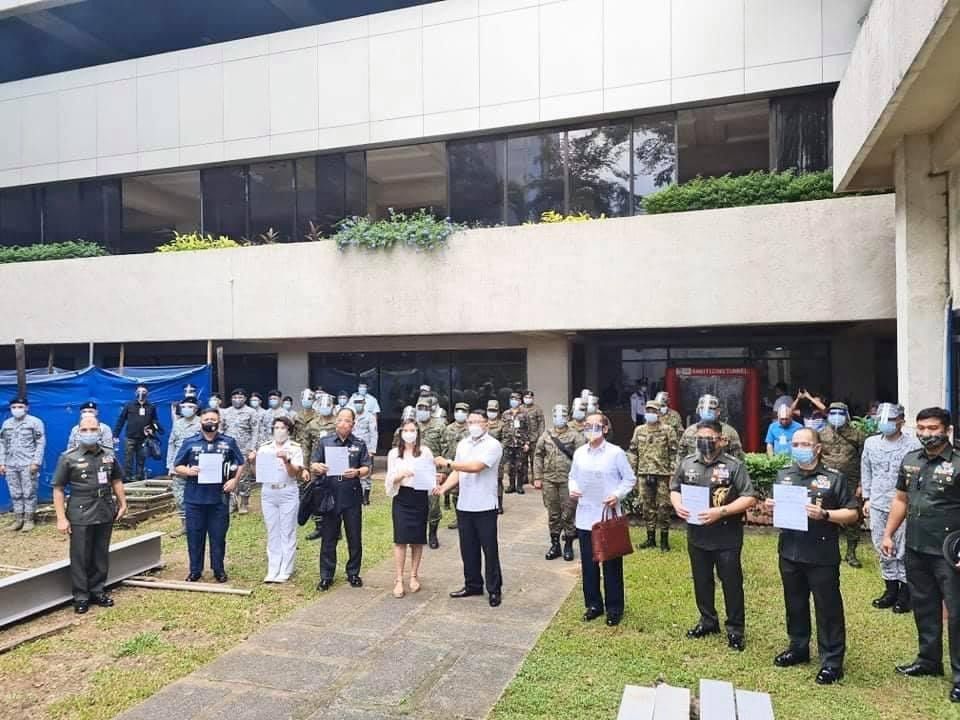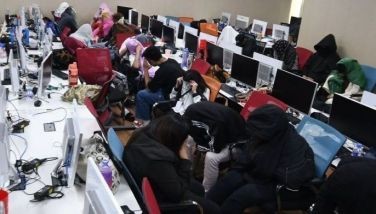Duterte Youth seeks revival of Cold War-era anti-subversion law

MANILA, Philippines — Alongside defense and military officials, right-wing party-list Duterte Youth is mounting the revival of the anti-subversion law that outlawed membership in the Communist Party of the Philippines.
Rep. Ducielle Cardema filed Tuesday a bill which seeks to penalize membership in communist organizations as they are supposed to be in an “organized conspiracy to overthrow the government of the Republic of the Philippines.”
The anti-subversion law, which outlawed membership in the CPP, was repealed in 1992 during the administration of President Fidel Ramos. It was enacted in 1957, during the presidency of Carlos Garcia, to counter the Hukbalahap.
The proposal seeks to impose jail time of six to 12 years, disqualification from holding any public office, and the seizure of all properties from those found guilty of membership in the CPP, its armed wing the New People’s Army (NPA), and the National Democratic Front (NDF), which represents communist rebels in peace talks.
The bill goes a step farther than President Rodrigo Duterte's proclamation declaring the CPP and NPA — but not the NDF — as terrorist organizations. A court determination is needed to officially proscribe the groups.
The proposed jail time increases to 12 to 20 years for repeat offenders, and to 20 to 40 years for those who would be convicted for a third time.
The bill provides that conviction can be secured just on the basis of at least two witnesses or the confession of the accused in court.
“If we want peace in this country, we must finally destroy the entire capability of the CPP-NPA-NDF to wage war in all their fronts, against our government and our people,” Cardema said in filing the bill.
But for Rep. France Castro (ACT Teachers party-list), the proposal “violates the constitutional rights to freedom of speech, assembly, and association as well as the equal-protection clause.”
Castro also recalled how ousted dictator Ferdinand Marcos used the anti-subversion law to jail critics, “imprison ideas and kill speech.”
In 2019, in response to a proposal from the Department of the Interior and Local Government to revive the anti-subversion law, Justice Secretary Menardo Guevarra said passage of the Anti-Terrorism Law would be enough to address the threats posed by communist rebels.
"Being leftist is far from being terrorist. As long as activism remains in the realm of ideology, there is nothing to be alarmed about," he said then.
Guevarra said, however, that when the ideology is translated to overt acts that "threaten the national security or at least cause widespread fear among the people, government has to step in, and step in really hard."
Penalties and rewards
While jail times are severe for those found to be members of communist organizations, the proposed imprisonment for anyone who produces false evidence for the prosecution of people accused to be communists ranges only from six months to six years.
It also contains a provision that seeks to give security escorts for government personnel and officers who actively participate in the passage and implementation of the proposed law.
Among the activities the bill considers to be evidence of membership to the CPP, NPA and NDF is the recruitment for these organizations in schools “using a different organization name.”
Leftist civilian organizations have been baselessly yet repeatedly accused of being fronts of underground communist organizations and of recruiting students to the communist rebellion — a charge that they have routinely denied.
The proposal has a so-called “balik loob provision” which exempts from punishment any member of the CPP, NPA and NDF who renounces their membership in writing and under oath before their municipal or city mayor, provincial governor or before the president of the Philippines 30 days after the law’s implementing rules and regulations are approved.
Those who renounce their membership during this period would be qualified for the government’s program for surrendered rebels. Should they choose to become a state witness against their fellow rebels, they would be placed under the witness protection program and be given a state pension or honorarium.
- Latest
- Trending





























